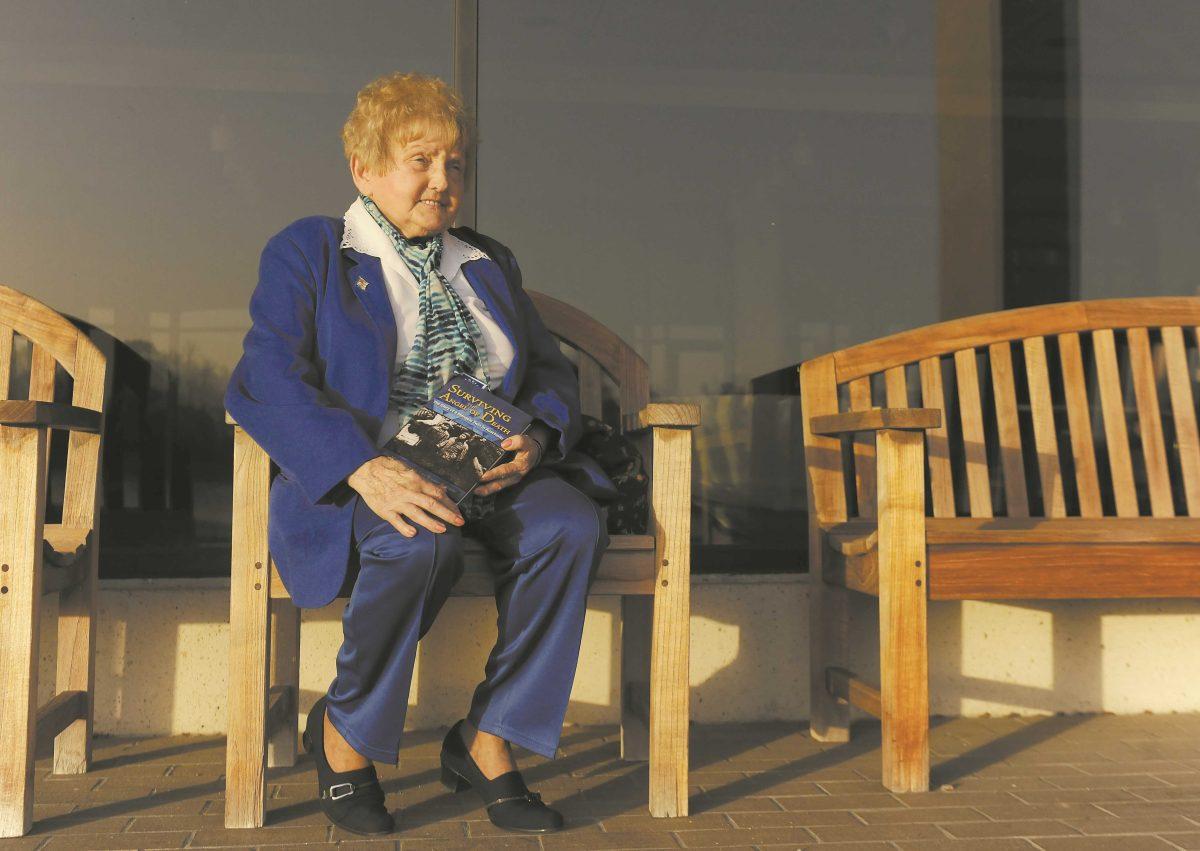The average 10 year-old is worried about how to spell and what type of sandwich is in their lunchbag. For Eva Kor, the 80 year-old Holocaust survivor, at 10 years old she was constantly worried when or if she would ever be freed from the Auschwitz concentration camp.
Kor spoke to almost 500 attendees at the Pennington Biomedical Research Center about how she survived the concentration camp and the lessons she has learned more than 70 years later.
Kor opened the lecture by describing the first moments after she stepped off the train and onto the grounds of Auschwitz.
There were about 100 people packed into a train car for four days. After they were off the train, Kor’s mother grabbed her and her twin sister, Miriam’s, hands in the hopes of keeping them safe from the guards. Kor’s father and her two older sisters were lost in the confusion.
A Nazi soldier approached Kor’s mother and demanded to know if Eva and Miriam were twins. When she said yes, Eva and Miriam were snatched from their mother’s grip.
“I never even got to say goodbye. I didn’t understand this would be the last time I’d see her. There is no other strip of land in the world that has seen millions of families ripped apart.”
The Kor sisters were then ushered into a group with other twins. They received their uniforms and lined up for registering and tattooing. Kor admitted that as a 10 year old, she wanted to give the Nazis as much trouble as she could and had to be restrained to receive her permanent marker.
In the latrine of the barracks, Kor viewed her first corpses and realized the same could happen to her and her sister. She made a promise to herself to prevent them from ending up on the latrine floor.
Kor recalled the daily schedule of the concentration camp; after breakfast every day but Sunday, Eva and Miriam were submitted to experimentation by the infamous Josef Mengele, who used Auschwitz as a means of acquiring free human test subjects.
On Mondays, Wednesdays and Fridays, the girls were stripped and measured and compared for eight hours. Tuesdays, Thursdays and Saturdays consisted of going into what Kor called the “blood lab.” Within the lab, blood was drawn from the right arm while the left arm was subject to injections of unknown chemicals and germs. Kor said to this day she still does not know what was put into her body.
Kor developed a fever from the experiments, and Mengele told her she had two weeks to live.
“I proved Mengele wrong,” Kor said.
She was released from the hospital after five weeks and was reunited with her sister. During Eva’s hospital stay, Miriam was put into isolation and studied by doctors for 24 hours a days. Kor later learned that if she had died in the hospital, Miriam would have been euthanized.
Kor then recalled the liberation of Auschwitz. One day she saw a plane fly over the camp with an American flag, giving her hope for a future outside of the barbed wire fences. As air raids increased, the frequency of experimentation decreased.
Auschwitz was liberated by the Soviet Union Army on Jan. 27, 1945. After nine months as a captive, Kor said a woman came into the barracks yelling “We are free!” Kor ventured outside to see people who didn’t look like Nazis smiling and handing out treats. That was her first taste of freedom. Kor and her sister both made it out of Auschwitz.
Kor relayed pivotal life lessons she has learned since the liberation of the camp.
“Never give up on yourself or your dreams,” she said. “Bad economies are the seed of genocide and prejudice is still with us. I have forgiven the Nazis; I have forgiven everybody.”
She reminded the audience that it was her decision to make it out of the camp alive, and if she had lost hope, she would not be a survivor today.
She also told of how she came to forgive the Nazis and Mengele. Kor was invited to talk at a conference in Boston and was asked to bring a Nazi doctor with her. Having participated in a documentary years earlier, Kor contacted Nazi physician Hans Münch.
She requested from Münch a document signed by him describing his experiences overseeing the gas chambers to prove to doubters that the Holocaust happened.
After she received the documentation, she said she felt an urge to thank him.
Kor wrote Münch a letter and had it proofread by one of her English professors. The professor told Kor that she needed to forgive Mengele for the suffering he had wrought. She said after she forgave Mengele all the pain was lifted, and she was free from Auschwitz and the doctor.
Kor ended her lecture by reiterating the power of forgiveness because without it, she would still be a victim.
Holocaust survivor speaks on forgiveness
By Whitney Lynn
March 21, 2014
Holocaust Survivor




